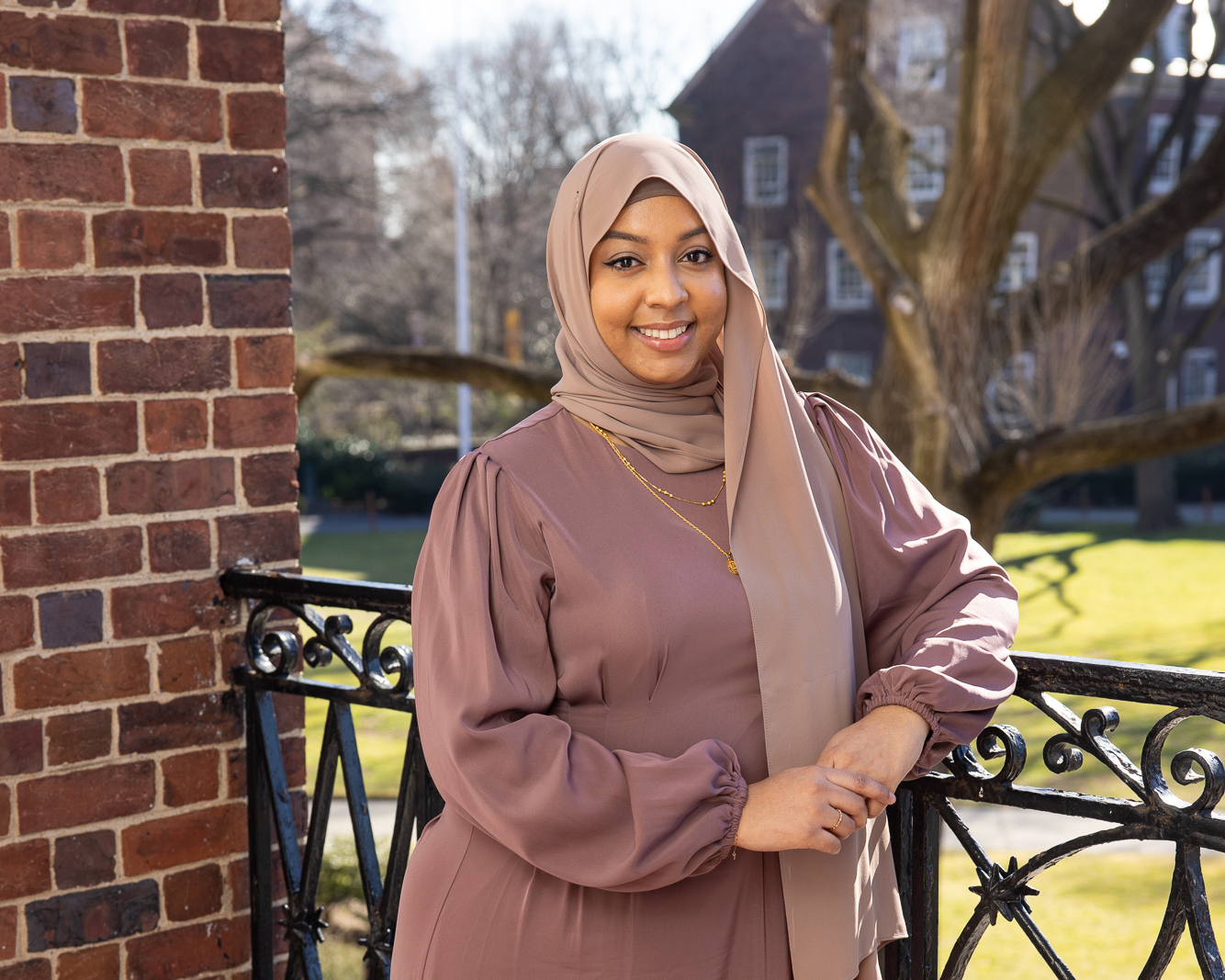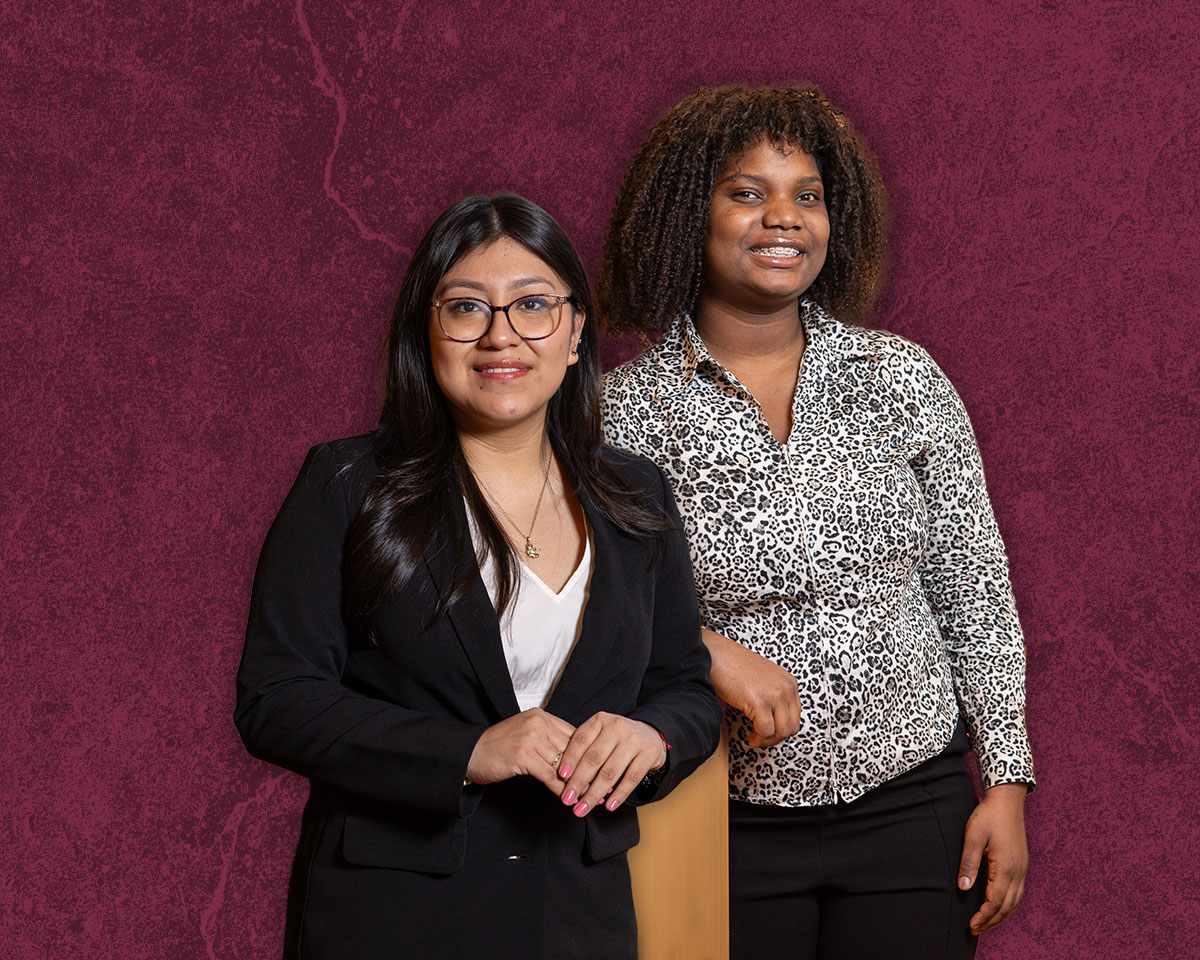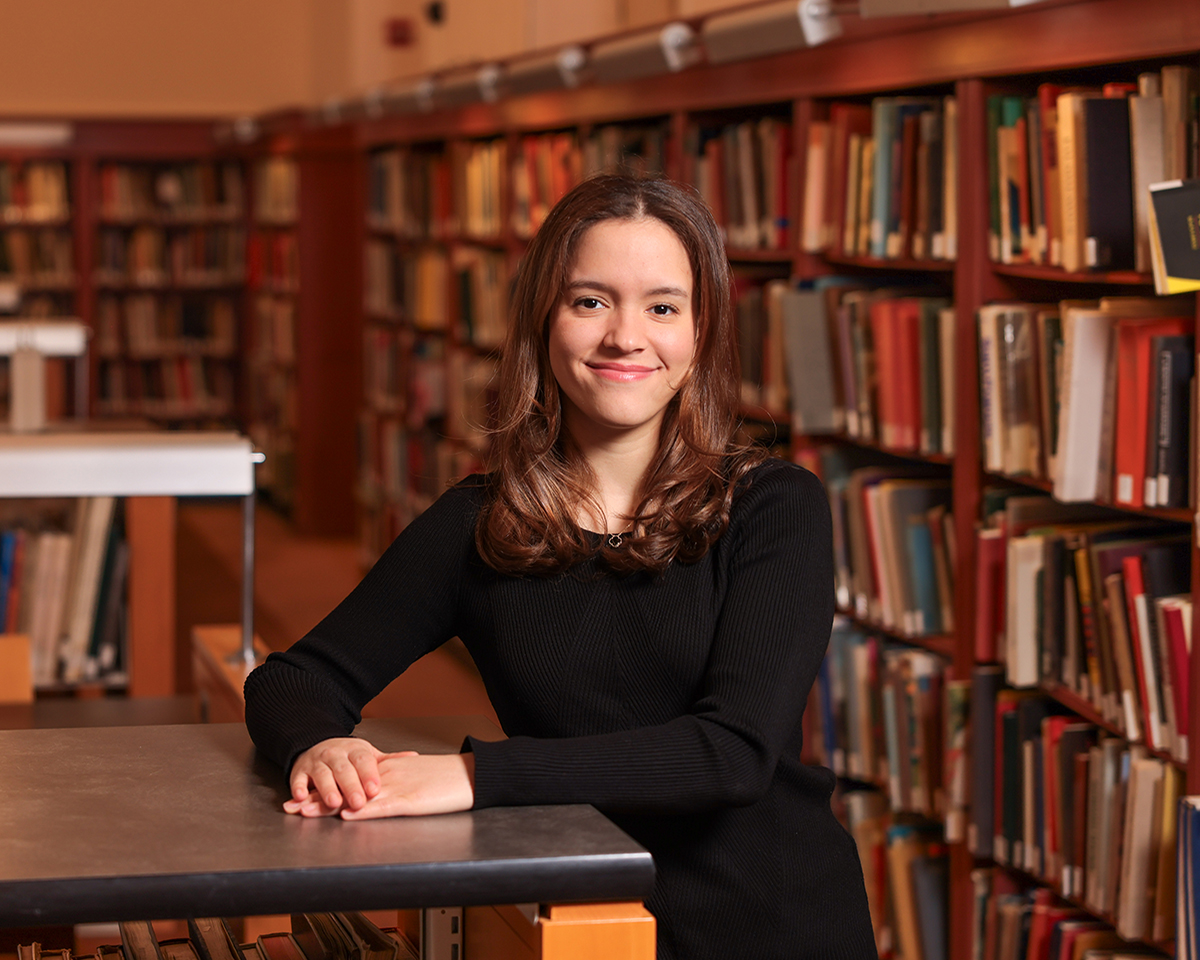Sadiya Hoque ’23 is a proud Brooklynite. Born and raised here, she grew up in the Kensington neighborhood and attended the well-known Edward R. Murrow High School in Midwood.
When she first went to college, she chose Long Island University Brooklyn, but she soon tired of the un-campus-like feel of its few downtown buildings, not to mention the expensive price tag. After taking some time off to work full time, she realized she wanted to return to school and transferred to Brooklyn College as a sophomore.
“It just felt like it fit my story to come to Brooklyn,” she says. “I live nearby. The beautiful campus was a big plus. And at the end of the day, this is a place where I can say I’m proud of my diverse peers and the friends I’ve made here.”
As a new student, she became more in tune with social justice issues and got involved in several activities that helped clarify her career goals.
She talks about how the organizations she joined shaped her and how she parlayed her extracurricular connections to snag her current position as the special assistant to President Michelle J. Anderson.
After you left LIU and started working, it must have been tough to give up a full-time paycheck to go back to school.
I was making good money and passed on some opportunities to advance at my job. It was a struggle, but during the height of the pandemic, the Black Lives Matter movement was heating up and I became more aware of social justice issues and the kind of anxiety that many people in the country were living with. I did some thinking and realized that I didn’t know what I was doing with my life. I had some savings, so I quit. I knew I needed to invest in myself. So when I came here, I started looking up extracurricular activities, something I never had time for before. I got involved with NYPIRG [the New York Public Interest Research Group] and got a public policy internship to work with state officials in Albany.
How did that connect with your interests and plans?
I was interested in public health and was thinking med school was the next step. But I came to realize that the healthcare system in America was dictated by unjust laws and Big Pharma. Doctors, although they provide healthcare, don’t have the leeway to make changes outside their office. The NYPIRG experience lobbying, writing memos, and speaking for the public voice made more impact than anything else, and prompted me to run for chairperson of NYPIRG’s student board of directors, where I served a two-year term. Each experience at NYPIRG pushed me closer to the idea that I wanted to pursue a career in public policy. I knew I couldn’t change the world overnight, but I wanted to get more involved. So I did.
How so?
One of the things I did was to reactivate the Global Medical Brigades chapter. It’s a group that gives students the opportunity to volunteer as medical assistants in under-resourced, mostly rural communities in a handful of countries. The college chapter had never been restarted after the pandemic. We had to start from scratch. All of our procedures and policies had to be written. We had to get the word out to student volunteers and show them what a good opportunity this was. We went to Panama, where we shadowed doctors, packed meds, and worked with pharmacies.
It was eye-opening. Healthcare is so routine for us and so accessible. Unless you go out in the world, you don’t know what it feels like to go without that. I was grateful for the opportunity, but at the same time it was heartbreaking.
You were also involved with the Undergraduate Student Government.
I was the USG president’s press director during my senior year. It’s what led me to this position because as press director, I interacted with the BC administration more than a typical student does, so I got to know the office a little bit. A week before Commencement, I got a call from President Anderson, who said she had this position open, and asked if I’d like to interview. I had a final exam and interview right after. A couple of days later, she called me and told me I had the job.
What do you do in your position?
I am an advisor to the president and a member of the cabinet. I schedule meetings for her and often attend them with her to take notes. I organize a lot of events, something I’m just realizing I enjoy doing. I deal with students a lot, and I’m very grateful. When students are working with the president’s cabinet or trying to organize a community event, I get to help them put it together. It’s a great benefit that I’m a former student because I can give my input. It’s rewarding because I remember how much it meant when someone helped me out as a student.
And what are your long-term plans?
I feel like I’m just getting started here. It hasn’t even been a year yet.
But eventually, I want to be a neuroscientist who also lobbies. I would love a job where my research could help change laws. I want to go to graduate school and study how the brain impacts our behavior and where that intersects with the law and public policy. The intersection of all of that is not a common field, so finding the right grad program isn’t easy.
For now, I’m going to stay receptive to the doors that open for me. I never thought about being in this position, and I’m really enjoying it.



